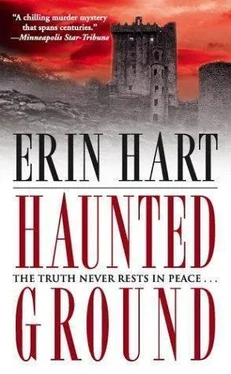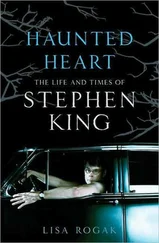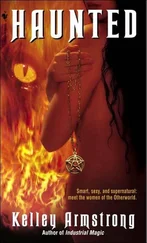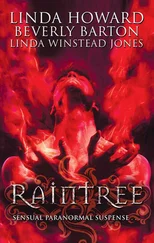“Shall I call the nurse?” she asked. He tried to shake his head no, but couldn’t manage it. He winced instead, then licked his lips and tried them out.
“Never should have had those fifteen pints,” he mumbled. She took his hand and smiled, but her chin wavered slightly.
“Please don’t. This is all my fault,” she said.
“It’s not.” He tried again to move.
“Lie still, Cormac.” He liked the sound of her voice, the way she said his name. “The doctor said you have a mild concussion, and some nasty bruises—but no fractures, which is a miracle. The tree branches must have helped to break your fall. And you’re only slightly singed from the fire.” Cormac looked down at white gauze bandages on his left arm and hand.
“Jeremy?”
Nora looked down. “He’s badly hurt. Broken bones, some internal bleeding. A possible head injury—it’s too early to tell.”
“Has he said anything?”
“He’s been unconscious.”
Cormac closed his eyes to consider what he should do. He opened them again, and said, “Nora, could you find Devaney for me?” The strain of the last twelve hours showed in her eyes, and it seemed to Cormac that she finally understood his reluctance to be drawn into this story, as if he somehow knew from the beginning what would be asked of him. He sank back into a half-sleep, and in what seemed like only a few seconds, Nora was back with the policeman at her side.
“Hell of a night,” Devaney said. “You and the young lad are lucky to be here. Osborne likewise. You needed to see me?”
“I did,” said Cormac. His own voice sounded strange and far away in his ears. “Jeremy said something last night—at the time I hadn’t a clue what he meant, but I think I do now.”
Devaney’s voice was quieter than usual. “Go on.”
“He said, ‘They’re here. There’s a place underground.’” Cormac watched as the substance of the words struck his listeners. Neither apparently had any doubt as to whom Jeremy’s words referred.
“Oh God, Cormac,” Nora said, and sank into the chair beside his bed. Devaney’s eyes closed, and his lips were set in an expression of disappointment and finality.
Cormac felt exhausted, and had to close his eyes as well. But there was more. He tried to remember what it was, though his head was pounding like a bass drum. “I think he said something else as well. Something like: ‘She knows. She’d never tell.’”
Devaney’s voice was sharp. “Are you sure? ‘She knows? She’d never tell’?” Cormac could hear the words stick in the policeman’s throat.
By the time Devaney had phoned in the request for a full-scale crime scene detail to meet him at Bracklyn House, he was already playing out the next few days in his head: the cameras flashing, and tarps rigged to keep away rain, the barriers set to fend off the prying reporters who invariably descended. Before he left the hospital, it might also be prudent to check on Hugh and Jeremy Osborne, and put a couple of the local lads on duty outside their rooms. The boy’s words finally gave them something to go on, but still left open the question of responsibility.
What had prompted Hugh Osborne to try the ultimate escape? A suicide didn’t fit with any way Devaney had figured the case. If Osborne wasn’t guilty, maybe he just couldn’t go on any longer. And if he was, perhaps he saw things beginning to unravel. When Devaney stopped at the door, Osborne was turned on his side, facing away from the corridor. A thin cotton blanket was drawn up over his shoulders, but there were no restraints. Nothing to keep him from walking away—or to keep him from doing himself further harm, Devaney thought.
“He’s sleeping now,” whispered the young nurse who came up behind him. “Just as well. When he wakes up he’ll have a right bugger of a headache.”
“How’s he getting on?”
“Are you a friend?” The girl’s porcelain skin was lightly freckled, and her green eyes fixed him with a compassionate gaze. He looked away.
“Acquaintance.”
“Much improved this morning, but the doctor says they’re going to keep him another day or two for observation. Carbon monoxide can have some rather nasty effects, and they don’t want to let him go too soon.”
“I see—thanks,” Devaney said. He’d see what turned up at the tower before he had a chat with Hugh Osborne. Two young Garda officers approached, and Devaney took them aside.
“What are your names?”
“Molloy,” said the first young officer.
“O’Byrne, sir,” said the second.
“I want you to stay here as my eyes and ears. Molloy, you’ll stay with Hugh Osborne. Try to be as unobtrusive as possible.” When he saw the blank look on the young man’s face, he added: “Blend in. O’Byrne, you can come with me.”
Jeremy Osborne’s status was still critical. Devaney approached the room where the boy lay propped up in bed with his left leg and arm in casts, and his head swaddled in bandages. Jeremy’s face was distorted and discolored by bruises, and a breathing tube was taped to his open mouth. Beside him, his mother sat upright in a chair, as if by keeping straight, she could hold her son back from the brink of death by sheer force of will. Lucy Osborne’s whole body turned toward Devaney as he entered the room. Her dry eyes seemed to overflow with pain, but the rest of her face remained masklike, frozen into a stoic calm.
“I blame myself,” she said. “If he had stayed near me, I might have kept him safe.” Her eyes flickered to the Garda officer beyond the door. “What’s going on?”
“It’s just routine. Until we have the full story of what happened last night,” Devaney said. “I promise he won’t be in your way.”
As he drove to the tower, Devaney thought of Mina Osborne’s letters, and of the mother in India, waiting patiently for news. People knew that the person they loved was dead, but let themselves be deluded, buoyed up for a while on the notion that what their gut was telling them could be wrong.
Maguire’s second bit of information had given him pause. She’d never tell. Could mean she’d done it, or they’d done it together. But it could just as easily mean that the boy and his mother had stumbled across the evidence, and—for whatever reason—decided to keep quiet. He should have realized the boy knew something, should have pushed him more at the interview about the cars. But there wasn’t time now to worry about all the possibilities; he had to find out whether Jeremy Osborne was telling the truth.
As Devaney pulled up at the side of the road near the tower, the file on the passenger seat of his car slid forward, and some of its contents spilled out onto the floor. He reached over to gather up the sheaf of scattered papers. Among them was one of the photographs he had taken in the confessional at St. Columba’s. Devaney put the car in neutral, and took a moment to look closely at the picture. There were the carved letters, crudely made, but clearly legible: HE KNOWS WHERE THEY ARE. He had been very nearly convinced that Brendan McGann carved them, as a silent accusation against Hugh Osborne. But as he looked at the photograph once more, his eyes returned to the first mark—it wasn’t a letter at all, but an empty square, more deeply gouged than the rest. It could be a mistake, but whoever made the mark could also have changed his mind, and wanted to destroy what had originally been there. He tried to find any evidence that it had once been the letters. As in SHE KNOWS WHERE THEY ARE. Whoever carved those words wanted so desperately to tell someone, anyone, to relieve the burden of guilt, but couldn’t muster the resolve to do it out loud. Another idea struck him. Of course. Jeremy Osborne had to be Father Kinsella’s candle thief; Dr. Gavin had said the tower was full of candles. If Jeremy was the messenger, who was the subject of his message, and why had he changed it? Or could someone else have found the message and altered it to suit his own ends? Devaney remembered the praying figure of Brendan McGann in the side chapel of the church. One thing at a time, he told himself, and braced himself for what he was about to do.
Читать дальше











